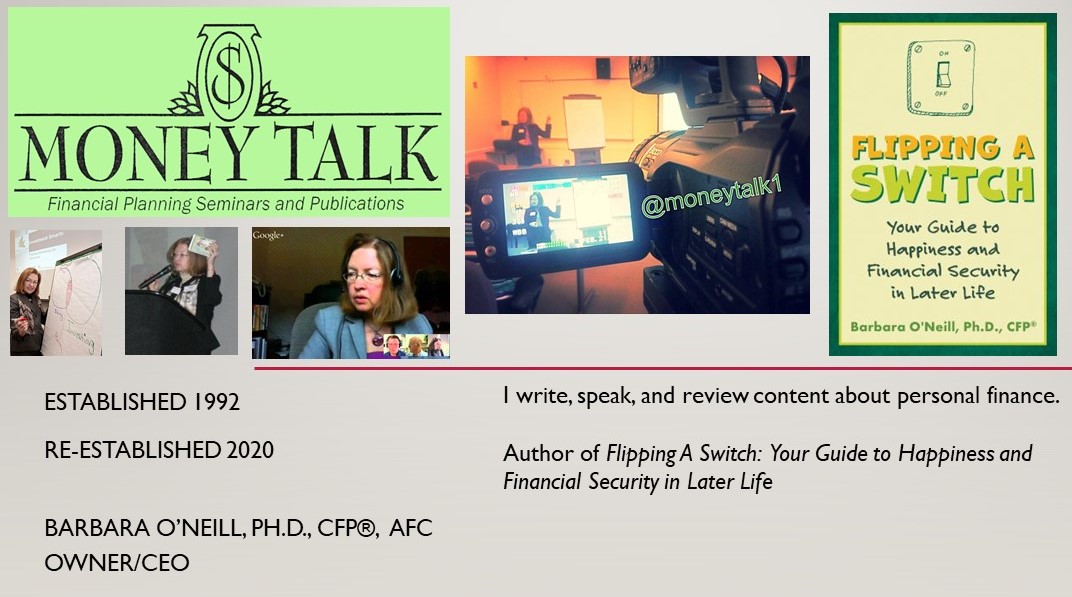I attended a webinar about financial health last week that was sponsored
by the Military Families Learning Network. The webinar was designed to help
professionals who serve military families better serve their clients in times
of financial stress. Below are four key take-aways from the webinar presenter,
Shawn Young, from the Financial Health Institute:
Money is Only One Resource- Families often have more resources than they
realize. For example, in-demand job skills and strong social bonds are
resources for income and in-kind services in lieu of income. Focus on resources
that are available.
Stress Impacts Cognition- Human brains are not designed for long-term
stress. Severe stress lasting weeks or months can impair the brain’s learning
and memory region, cognitive capacity, motor skills, and more. One study found that
financial stress can tax a person’s mind enough to cause a 13 point drop in IQ.
A Scarcity Mindset Impacts
Financial Behavior- With a
scarcity mindset, people believe that “there will never be enough” and their
thoughts and actions reflect this. Examples include under-tipping waiters to
pay less for meals, not investing to avoid losing money, and clinging to
possessions, even hoarding.
People Only Have So Much “Mental
Bandwidth”- The term for
this is “tunneling,” which is the act of focusing so intently on one issue
(e.g., a crisis event) that other issues are unable to be seen or acted upon
(e.g., routine financial decisions). Studies have found that pressing financial
concerns reduce brainpower needed for navigating other areas of life.
To view the webinar and presentation materials, visit https://militaryfamilieslearningnetwork.org/vc2019/holisticfinancialhealth/.




